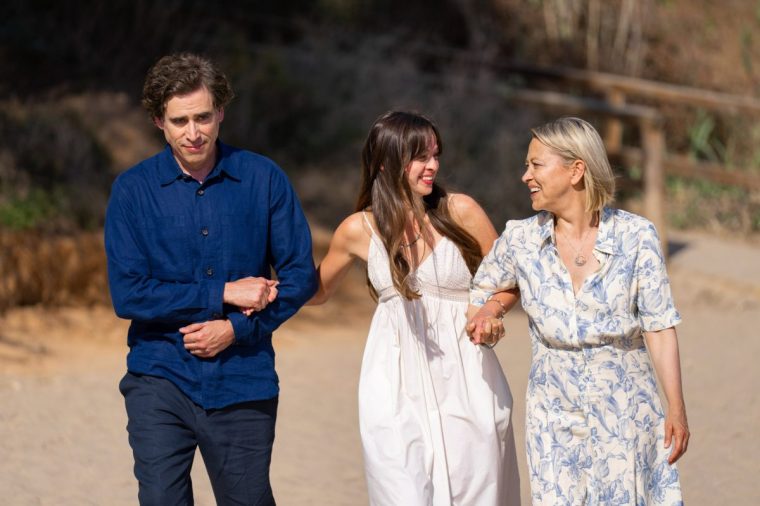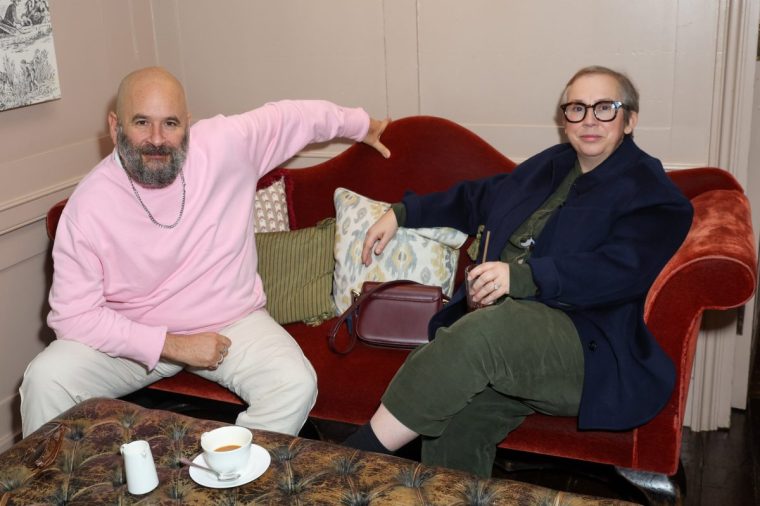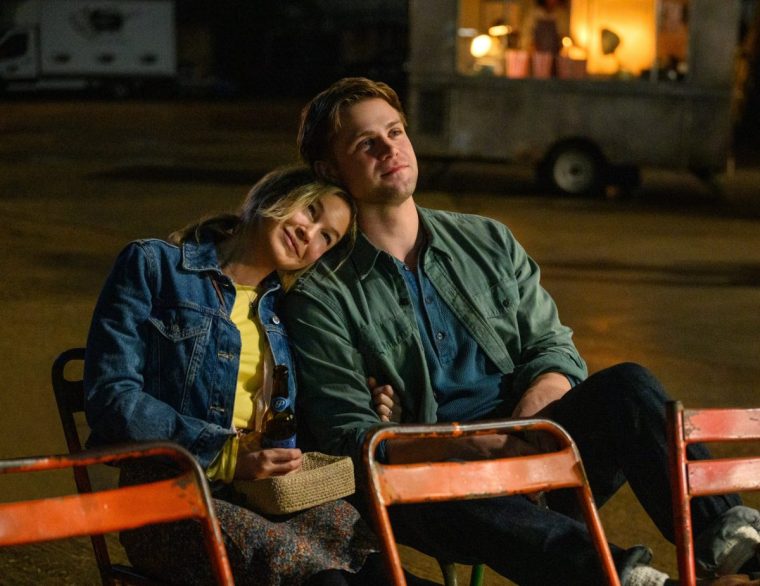“It’s not Chekhov. I’m not writing Ibsen here,” says Abi Morgan. “But it’s a serious business, escapism. Because if you just give escapism then it’s like candy floss – you get sick after it. You want escapism that slightly feeds you as well.”
Morgan is talking about her hit BBC legal drama The Split. Despite her impressive body of work as one of the country’s leading writers – Margaret Thatcher biopic The Iron Lady, Steve McQueen’s Shame, her Emmy-award winning 1950s newsroom drama The Hour, adaptations of Sebastian Faulkes’ Birdsong and Monica Ali’s Brick Lane and this year’s Netflix miniseries Eric, which starred Benedict Cumberbatch – it is The Split for which Morgan is best known and loved.
It’s a show that she describes as “a brilliant Trojan horse” – presenting as a slick, slightly soapy, definitely sexy melodrama about a family of divorce lawyers, but stealthily deploying a satisfyingly grown-up perspective on the messiness of relationships and marriage in the modern age. When it ended in 2022, after its third series, Morgan stated that it felt like “the right place” to finish.

But only two years on and she is back – as are the cast, led by Nicola Walker and Stephen Mangan – for The Split: Barcelona, two special episodes that transport the Defoe family from glossy London to balmy Barcelona for a wedding bash that goes predictably off the rails.
The BBC are obviously keen to milk The Split’s successful brand. Another series, The Split Up – a Manchester-set chapter created by Ursula Rani Sarma focusing on a British-Asian divorce firm – was announced earlier this year before being postponed. (Morgan maintains that there is “still an absolute commitment” to making the show and that “the expectation and intention” is to begin shooting next year.) But the Barcelona edition primarily came out of a desire to make a “joyous thing at a point in the world where there isn’t much joy… We’re really fighting to find something that feels reassuring and has an element of safety. The Split is a very safe show. But it’s deceptive because it’s also going to make you feel something.”
It is true that through all the betrayals, boardroom battles and lunchtime shags, The Split has been able to deliver hard emotional truths, probably because Morgan has channelled so much of her own life experience into it. The show was partly inspired by the divorce of her own parents, the actress Pat England and director Gareth Morgan, when she was 13. “I guess I like to explore the life cycle of a relationship,” she says. “I’m interested in moments of punctuation, when things change.”

But during the writing and filming of series two, Morgan suffered an extraordinary one-two punch. First, in June 2018, her partner of 18 years, the actor Jacob Krichefski, collapsed at the couple’s home in Crouch End after which he spent six months in an induced coma. When he awoke, he did not recognise Morgan, suffering from Capgras syndrome, a rare psychiatric disorder where you believe a loved one is an imposter. Shortly after this, Morgan was diagnosed with breast cancer and underwent a mastectomy. At this impossibly difficult time, work sustained her. She attended set in between chemo appointments and wrote a book, This is Not a Pity Memoir, about the experience. When she came to write series three of The Split, she explored the themes of grief and understanding that “life can change in a heartbeat” that had impacted her so heavily.
Now, returning to the show, Morgan has again looked to her own life and what it means to be a woman in her mid-fifties. “I’ve always seen it as a superpower that women are engaged with every age in their life,” she says. “I’m sure men have those same hormonal rhythms; society just doesn’t build up a whole industry around them beyond hair dye. But there is so much industry around, and expectation on, women as to what they should be in every decade.”
And so, like Morgan, Walker’s character Hannah is facing up to the question of her identity “post-menopause, post-childrearing, post-reaching a certain level in your career”. She is navigating empty-nest syndrome and balking at the thought of opening herself up to love again. At one point, Walker delivers a devastatingly raw monologue about Hannah’s fears of someone else seeing her naked at this age. “That speech is really what I feel,” says Morgan. “Even with my husband, I feel like that. I’m really trying to send that message out to other women that you’re not alone.”

Having married in June 2021, Morgan and Krichefski are now both doing well. Morgan is coming up to being five years all clear from cancer and Krichefski is “fantastic and brilliant. Still rehabilitating himself and still evolving but I feel very lucky that we got him back.” With their two children now in their early twenties, the couple are figuring out a new phase of parenthood: enjoying the “Woooo, we can do what we like!” element of rediscovering “cinema and late-night bars and minibreaks” while also trying to understand their new dynamic: “Sometimes you feel more childish than the children and at other times, you still have to be the parent. It’s a very peculiar time.”
It is perhaps no coincidence, given her current fascination with female middle age that Morgan is also part of the writing team (alongside Helen Fielding and Dan Mazer) for next year’s fourth Bridget Jones film, Mad About the Boy, which sees Britain’s most famous singleton dealing with both widowhood and raising two children on her own. Bridget is a character Morgan loves and identifies with: before she met Krichefski (at a dinner party, after which she pursued him via email “for months, I may add”), she admits she “was very Bridget actually. Embarrassing. I think I was Bridget without the wit… I had all the disastrous, terrible one-night stands… I probably got dumped several times, they kind of blur.”
Insisting that she “just comes in and sprinkles a bit of emotional dust” on the script, it has been a chance for Morgan to indulge her love of rom-coms: “I love ones that are fun and escapist and can be saccharine and over-cute. I love all of that! But I also love all the ones that deliver a punch.”
Again, she returns to the idea that we need a balanced cultural diet, the frothier stuff offsetting the stuff that’s tougher to swallow. What’s going on in the world, she says, is “pretty damn overwhelming right now” and Morgan feels in limbo: “On one level, I want to run away as far as I can, to go to a place where I just don’t have to look. And then the other part of me wants to stare into the dark heart of it and understand it. And I think that’s where we’re all at.”
The Split is therefore her compromise. “The responsibility of television is to make you think and feel and care but it also is entertainment,” she says. “You also need the place where people can escape and feel safe and held, and that sometimes can be the place that then allows them to think about the dark stuff.”



Maurice Saatchi: I used to adore capitalism – then I had lunch with Margaret Thatcher